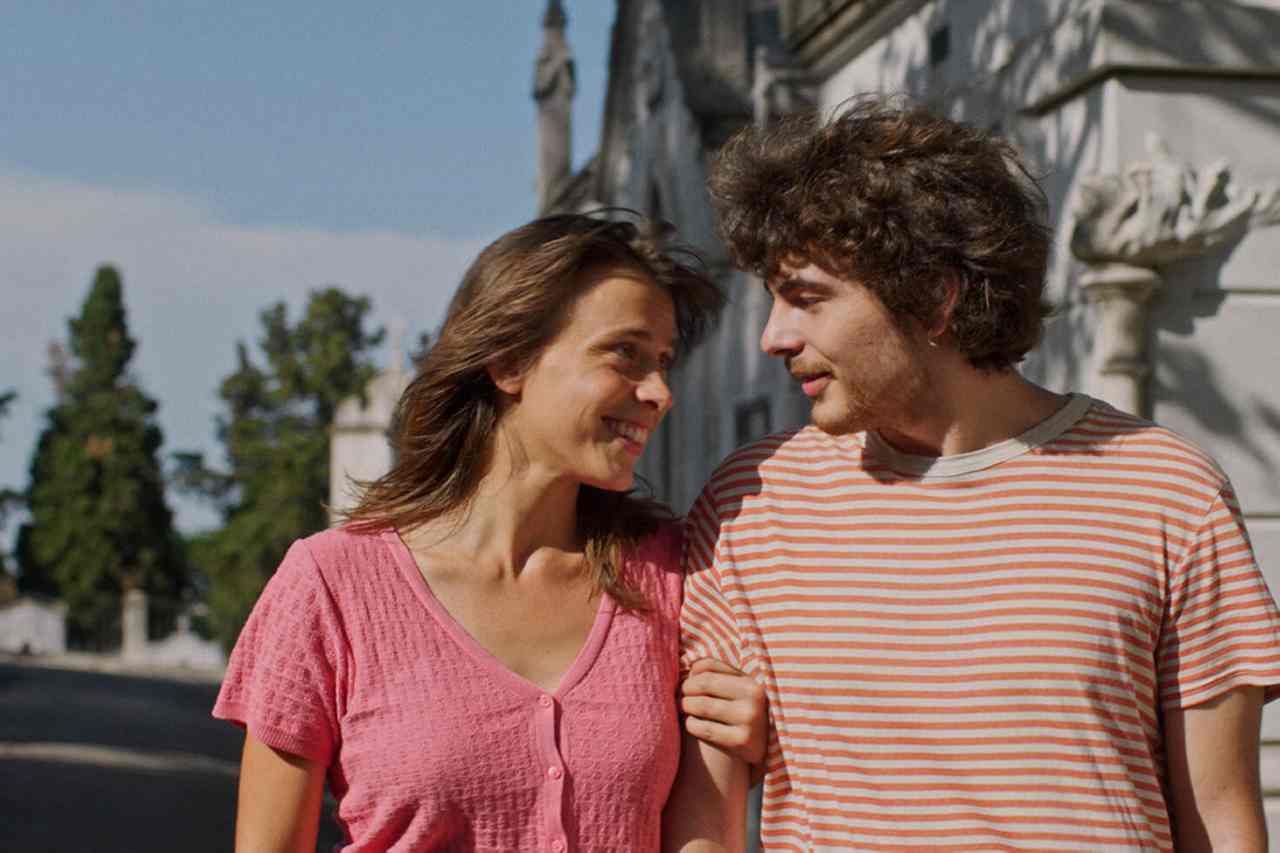Movies about 20-something characters drifting aimlessly by way of life tend to float themselves, however that can be a part of their allure. Not each film must be a nail-biter, and never each plot must be engineered like a Maserati. Among the greatest examples of the style — Dazed and Confused, Earlier than Dawn, Frances Ha, Fellini’s I Vitelloni — convey that feeling of countless drifting whereas remaining altogether charming. In a way, the drift turns into the crux of the story.
Nicolau (Francisco Melo), the shy and shaggy protagonist on the coronary heart of Joao Rosas’ debut characteristic, The Luminous Life (A Vida Luminosa), feels just like the quintessential drifter of our time — or at the least as such a time exists in a recent western European capital. Lovesick and eternally on the lookout for gainful employment, he wanders round Lisbon looking for one thing he can’t fairly identify or put his palms on. Possibly it’s hope? Or a viable profession? Or a brand new girlfriend? No matter it’s, he doesn’t appear very motivated to search out it, but his meandering quest manages to intrigue all the identical.
Each breezy and melancholic, the movie reveals hints of Eric Rohmer with its collection of random romantic encounters — together with one through which Nicolau crosses paths with a French woman, Chloé (Cécile Matignon), who turns into a love curiosity. But it surely additionally bears the forlorn aimlessness of Robert Bresson’s 4 Nights of a Dreamer, going as far as to quote Bresson’s writings throughout a sequence set on the Cinemateca Portugesa. Though French cinema could be the inspiration behind a lot of The Luminous Life, the movie feels Portuguese by way of and thru, mixing a dreamy disappointment with moments of surreal comedy and sensuality, not not like the work of late auteur Joao Cesar Monteiro.
Nonetheless dwelling together with his mother and father when the film begins, and nonetheless connected to a lady he broke up with a yr in the past, Nicolau doesn’t appear to have any actual targets besides, maybe, getting out of his rut. “You’re letting life go you by,” somebody warns him, to which he replies: “I simply can’t see myself doing something.” He manages to get a two-week temp job counting bike riders on metropolis streets, lands an interview at a elaborate promoting agency, and eventually winds up working at a stationary retailer, the place he’s obliged to decorate as Santa Claus in the course of spring. In his spare time, he performs bass in a band that by no means appears to get alongside, placing a damper on a music profession that he hasn’t taken too significantly, anyway.
It’s not a lot to construct a movie on, however Rosas sustains our curiosity by way of the sincerity of the encounters we witness, most of which contain Nicolau hanging out with ladies his age — ladies who, for probably the most half, are much more centered and career-oriented than he’s. They’re attracted by his attractiveness and laid-back charms, but additionally conscious of the actual fact he isn’t going wherever. In some unspecified time in the future we begin questioning whether or not Nicolau’s ex felt the identical method, shifting on in life whereas her boyfriend was nonetheless determining what to do together with his. To complicate issues, we additionally be taught that Nicolau’s hardworking dad is being cheated on, making his son query the worth of a sustainable job if it finally ruins your marriage.
The director and cinematographer Paulo Menezes seize these queries in colourful vignettes set in opposition to an city backdrop that by no means feels touristy. We see the town because it exists for normal folks — and listen to it by way of sound design that amplifies the quotidian motion of automobiles, buses, trams and bicycles. When there may be music, it comes from Nicolau’s band as they rehearse numbers that channel the temper of the lead character and the film itself: relaxed, considerate, a bit pop and a bit aloof.
The plot thickens within the closing reels when Nicolau drifts nearer to Chloé, who’s on the town writing a thesis on cemeteries entitled “The Structure of Dying” — a topic that appears diametrically against her free-spirited, sensual demeanor. Is it attainable Nicolau has lastly discovered the love he’s been looking for? The reply could possibly be sure, however Rosas additionally means that he could also be repeating the identical errors from earlier than. If there’s maybe any ethical to this wistful journey towards nowhere, it’s that the one luminous life price dwelling is the one you’ve constructed for your self, as soon as you determine what that’s.
Full credit
Venue: Karlovy Differ Worldwide Movie Competition (Crystal Globe Competitors)
Manufacturing corporations: Midas Filmes, Les Movies de L’Après-Midi
Solid: Francisco Melo, Cécile Matignon, Margarida Dias, Federica Balbi, Gemma Tria, Angela Ramos, Francisca Alarcao
Director, screenwriter: Joao Rosas
Producer: Pedro Borges
Cinematographer: Paulo Menezes
Manufacturing designer: Claudia Lopes Prices
Editor: Luis Miguel Correia
Gross sales: Loco Movies
In Portuguese, French
1 hour 39 minutes






